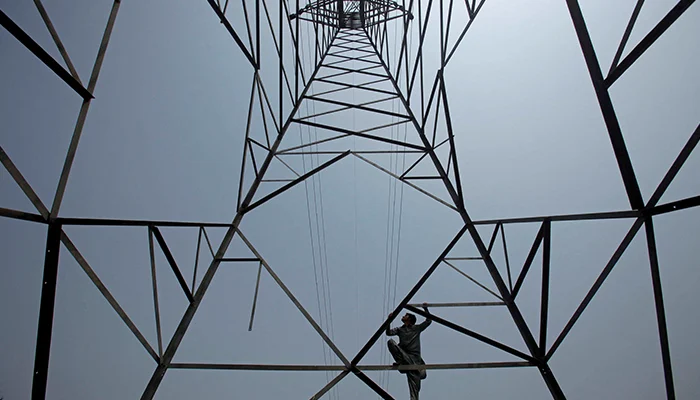- Mounting debt becomes major concern for government.
- Debt increases Rs394bn from July 2022 to May 2023.
- It rises despite tariff hike of Rs7.9 per unit in July 2022.
ISLAMABAD: The power sector circular debt has reached a staggering amount of Rs2.646 trillion by the end of May 2023, registering an increase of Rs394 billion from July 2022 to May 2023, according to a report by the Ministry of Energy.
The mounting debt has become a major concern for the government and power sector policymakers, as it indicates monthly inefficiencies in the energy system, particularly in generation and distribution, resulting in an additional burden of Rs35.82 billion ($132.2 million) each month.
This comes despite the government’s implementation of a base tariff increase for electricity last July, following pressure from the International Monetary Fund (IMF), which demanded tariff measures to reduce the debt, rejecting the notion of bridging the gaps in power holding companies.
Despite a significant tariff hike of Rs7.9 per unit in July 2022, the circular debt continued to rise, as underlying structural issues in the sector remained unaddressed, leading to a substantial financial burden on loyal power consumers, amounting to billions of rupees every month.
The data reveals that the cumulative debt volume stood at Rs2.253 trillion by the end of the fiscal year 2021-22, which ballooned to Rs2.646 trillion by the end of May 2023.
Meanwhile, payables to power producers surged by Rs420 billion to Rs1.771 trillion during these 11 months. The state-owned generation companies (GENCOs) also saw their payables to fuel suppliers rise from Rs101 billion to Rs110 billion during the same period.
However, a positive development was observed in the amount of debt parked in Power Holding Limited (PHL), which decreased by Rs35 billion to Rs765 billion from the previous figure of Rs800 billion recorded at the end of June 2022.
The inefficiencies of power distribution companies (DISCOs) have emerged as a significant burden on the financial health of the power sector, primarily due to their high losses and low bill recoveries.
These shortcomings in power transmission and distribution are impeding the sustainable provision of energy services, resulting in elevated energy prices and amplified business costs.
During the eleven-month period, the power distribution companies (DISCOs) incurred losses and inefficiencies, along with non-recoveries of bills, contributing Rs374 billion to the circular debt, accounting for 95% of the total addition of Rs394 billion to the overall debt stock.
DISCOs’ losses and inefficiencies amounted to Rs125 billion, while low bill recoveries added Rs249 billion during July-May 2022-23.
The breakdown of circular debt additions further shows that Rs87 billion was attributed to the payment of interest to power producers on delayed payments, with the government currently owing Rs1.77 trillion to these generators.
Additionally, Rs58 billion was added to the circular debt due to interest payments to banks on the Rs765 billion parked in a power holding company.
To address this issue, the government has imposed a debt servicing surcharge of Rs3.23 per unit, passing on the cost of inefficiency to power consumers.
Furthermore, Rs171 billion was included in the circular debt due to delays in the recovery of generation costs through quarterly and monthly fuel charges adjustments. An additional Rs57 billion was added to the debt stock due to non-payment by K-Electric.

 Latest News2 days ago
Latest News2 days ago
 Latest News2 days ago
Latest News2 days ago
 Latest News2 days ago
Latest News2 days ago
 Latest News2 days ago
Latest News2 days ago
 Entertainment2 days ago
Entertainment2 days ago
 Business2 days ago
Business2 days ago
 Latest News2 days ago
Latest News2 days ago
 Latest News2 days ago
Latest News2 days ago























